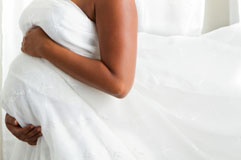 The subject of three-parent in vitro fertilisation has come as somewhat of a surprise to me: I had no idea such a thing was scientifically possible! However, the Department of Health has apparently approached the fertility regulator to find out whether or not three-parent IVF may be an acceptable technique in the future and has therefore opened a public consultation over this issue.
The subject of three-parent in vitro fertilisation has come as somewhat of a surprise to me: I had no idea such a thing was scientifically possible! However, the Department of Health has apparently approached the fertility regulator to find out whether or not three-parent IVF may be an acceptable technique in the future and has therefore opened a public consultation over this issue.
As you can imagine, given the moral and ethical issues involved with this type of procedure, opinions and comments are already raging. Some have stated that three-parent IVF treatment would effectively create 'hybrid' children; these people are concerned over the possible implications for future generations. As the Society for the Protection of Unborn Children told The Independent Newspaper, "These macabre experiments are both destructive and dangerous, and therefore unethical. Scientists should abandon the spurious field of destructive embryo experimentation and instead promote the ethical alternative of adult stem-cell research, which is already providing cures and treatments for the same conditions."
The reason for this public consultation is down to the fact that around 100 babies a year are born with a condition known as mitochondrial disease. Many of these children will die in infancy, and this is entirely what scientists hope to prevent with three-parent IVF treatments.
Mitochondrial disease affects the part of the cell that is used to convert food into vital energy for the body. Out of an estimated 23,000 human genes, about 37 are contained along a very short strand of DNA that is present within a cell’s sausage-shaped mitochondria. Genetic mutations can occur within these 37 mitochondrial genes, and this can lead to medical complications that are thought to account for serious conditions in one in every 5,000 births. These conditions can involve anything from heart and kidney problems to deafness and blindness and even early-onset dementia.
The procedure in question would involve taking the healthy DNA from a mother's egg and transferring it into the egg of another woman who would be the donor. This can be done either before or after fertilisation by the male's sperm. So, as you can see, this process involves the genes from three different people, and it is this fact that is proving to be the most controversial.
At present, procedures such as these are illegal. However, Public Health Minister Anne Milton has stated that "mitochondrial disease can have a devastating impact on the people who inherit it. Scientists have developed a new procedure to stop these diseases being passed on. But such a procedure would not be allowed ... under current laws, so we are consulting the public as to whether we should change the law."
Human fertilisation and embryology has proven to be a very controversial area over the past few years. Scientifically, we appear to be progressing at an astonishing rate in this field, and over the past few decades we have managed to achieve things that we could only have dreamt about forty years ago. Many people maintain that we are playing with fire when it comes to tampering with the human genome to this extent. It will be very interesting to see how the public consultation regarding three-parent IVF progresses over the coming months. One thing is for sure: you will never get all sides to agree when it comes to such an issue!

